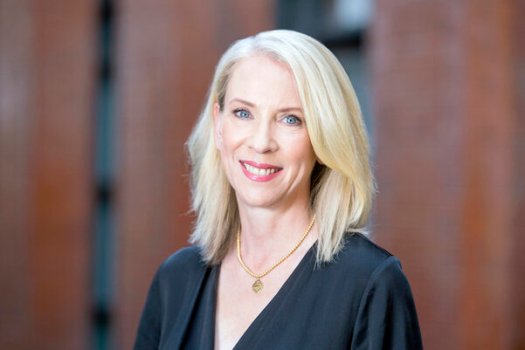Clare Mockler is the Chief Executive Officer of the City of Adelaide, a designated UNESCO City of Music with 25,550 residents, 11,500 businesses, 300,000 daily visitors and a commitment to becoming one of the world’s first carbon-neutral cities.
GN asked her about the challenges of 2022, her hopes for 2023 and how Council is responding to changes in the LGA.

At a glance:
- Glad to see the end of: lockdowns and restrictions
- Projects for 2023: progressing the first City Plan in 30 years
- Excited about: working with newly elected mayor and council
- Biggest change affecting LGA: Climate change
GN: How did 2022 treat your council and what did you learn from it?
CM: I’ve learned this year that the City of Adelaide is even more resilient and creative than we could have imagined. A commitment to community safety, growth and prosperity, paired with a purposeful focus on steadily improving Council’s financial position, sees our organisation and our city emerging stronger from the pandemic.
Despite state-wide lockdowns and mandated restrictions, we continued all the services our community expects, while delivering Covid recovery support for city businesses via our Reignite Adelaide program. Overall Council has invested more than $20 million in City recovery initiatives.
We supported our creative industries by removing fees for events, investing in event infrastructure, commissioning public art and sponsoring festivals throughout the City and North Adelaide.
Our Mainstreets Revitalisation Program, which included marketing, branding and activation initiatives, and community consultation, informed the development of master plans, and we secured $4 million from the state government to deliver infrastructure improvements for two of our most iconic streets.
After being invited in 2021 by UNESCO to become Australia’s first National Park City – and the second globally after London – we officially opened a $13 million, 3.2 hectare wetland in Victoria Park / Pakapakanthi (Park 16) – the largest Parklands earthmoving exercise and redevelopment in the past 60 years.
Adelaide’s night time economy has experienced a strong recovery with increases in the number of establishments, employment and sales turnover in the city.
How is your financial outlook for the coming year, and do you have any interesting projects planned that you’d like to share?
While Council froze the rate in the dollar for the ninth consecutive year, along with many fees and charges, we managed to turn an operating deficit into a surplus and achieved the $20 million organisational efficiency target set by Council.
We delivered a total of $45.2 million of capital works up from $32.3 million the previous financial year and secured $80 million in funding from the state government to ensure the future of the Adelaide Aquatic Centre.
In 2022 we achieved major milestones for city-shaping projects with construction commencing in April on our landmark $250 million development at Eighty Eight O’Connell, delivered by Commercial and General, after 30 years of the site sitting vacant. This development will boost residential growth and bring economic benefits for the O’Connell Street precinct and North Adelaide.
In June construction commenced on our $400 million once-in-a-generation transformation of the Central Market Arcade in partnership with ICD. ‘Market Square’ will create a world-class fresh food destination and bring hundreds of new residents and jobs into the CBD.
We also commenced work on our City Plan, the first in 30 years, to provide certainty to business and help attract investment to Adelaide and we adopted a Residential Growth Action Plan.
What are you most looking forward to in 2023?
With a new Lord Mayor and Council just elected, it’s no surprise that I am looking forward to learning more about Council’s priorities and areas of interest to support Council’s vision for the City and North Adelaide.
What do you expect the biggest challenges will be for you in 2023?
The external environment continues to present challenges, from labour shortages, increased materials costs, competition for talent in an employee’s market, and business continuity pressures due to new COVID variants.
With limited financial levers at our disposal, the City of Adelaide is actively exploring new revenue streams and opportunities to realise benefits from underperforming assets to underpin our future sustainability, as an organisation and as a city.
Every new Council understandably aims to make their mark early in their term, set an ambitious strategic plan, and leave a lasting legacy for our community. The challenge in 2023 will be to ensure we deliver for our new Council and fulfil all commitments of our existing strategic plan while maintaining a balanced budget.
How is your LGA changing and what are you doing to adapt?
Climate change is obviously one of the city’s biggest challenges. That is why we are committed to become one of the world’s first carbon neutral cities. It’s our role to showcase the economic, social and environmental opportunities of responding to climate change, including the uptake of renewable energy and clean, smart technologies.
The pandemic has also seen a change to when people spend time in the CBD – it’s clear that work from home practices are here to stay. Council has invested in market research to understand the drivers to encourage workers to return to the city and more broadly to increase visitation and spend with city businesses. This includes making sure Adelaide maintains its reputation as a magnet city that hosts world class events and festivals, supporting our communities’ wellbeing, and making the city accessible, safe and easy for people to move around and connect.
*Originally from the UK and with a legal background, Ms Mockler joined the City of Adelaide in 2002. She holds a Masters degree in Public Policy and Management from Carnegie University, and has led business transformation and policy reform across the organisation, through multiple senior roles.
She was appointed CEO on September 1, 2021.





Leave a Reply